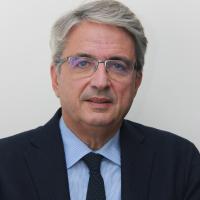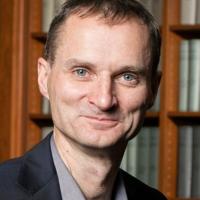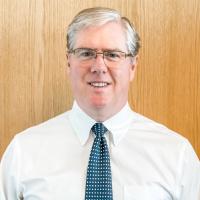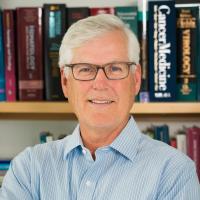Scientific Advisory Board
Internal Advisory Board
Riccardo Dalla-Favera
- Percy and Joanne Uris Professor of Clinical Medicine and Professor of Pathology and Cell Biology, Genetics and Development and Microbiology and Immunology- Columbia University
Riccardo Dalla-Favera is best known for his studies on the genetic alterations involved in the pathogenesis of human cancer, in particular, human B cell lymphoma. Dr. Dalla-Favera and his research team have contributed significantly to the understanding of normal B cell function, directly impacting the diagnostics and therapeutic targeting of B cell malignancies including Burkitt Lymphoma, Diffuse Large B Cell Lymphoma, and Chronic Lymphocytic Leukemia.
He co-discovered the MYC oncogene involvement in chromosomal translocations associated with Burkitt lymphoma. Subsequently, his laboratory identified several mutated genes involved in lymphomagenesis, including BCL6, a key transcription factor in B cell development, and an important oncogene in B cell lymphoma. More recently, using genome-wide gene sequencing and gene expression analysis, the Dalla-Favera laboratory elucidated a more complete landscape of the genome of these malignancies. They have identified the normal function, as well as the contribution to B-cell transformation of recurrently altered genes, by using in vitro studies and conditional mouse models reproducing the lesions in B cells.
Dr. Dalla-Favera’s work is widely recognized with numerous National and International prizes and awards, including two NIH MERIT Awards, the 2006 William Dameshek Prize for Outstanding Contribution to Hematology from The American Society of Hematology, the 2012 Alfred Knudson Award from the National Cancer Institute, and in 2014, the OncLive Giants of Cancer Care Award. Dr. Dalla-Favera is a member of the National Academy of Medicine and the National Academy of Sciences.

Sabrina Diano
- Robert R. Williams Professor of Nutrition; Director, Institute of Human Nutrition- Columbia University
Dr. Sabrina Diano is the Robert R. Williams Professor of Nutrition, Director of the Institute of Human Nutrition, and Professor of Molecular Pharmacology and Therapeutics and Physiology and Cellular Biophysics at Columbia University Irving Medical Center. She is also an Adjunct Professor at Yale University in the Department of Cellular and Molecular Physiology. Her research focuses on CNS (hypothalamic) mechanisms relating to the regulation of energy and glucose homeostasis. Her studies on hypothalamic inter- and intra-cellular mechanisms that regulate energy metabolism add critical information to the current understanding of the central regulation of energy and glucose homeostasis and how alterations in stored energy are sensed in the hypothalamus. The results of her research have important implications for understanding the pathogenesis of metabolic syndrome, obesity and type 2 diabetes, disorders that are the leading cause of morbidity and mortality in the U.S., and the developed world in general, with the highest financial burden on the National economy.

Muredach Reilly
- Florence and Herbert Irving Endowed Professor of Medicine; Director, Irving Institute for Clinical and Translational Research; Associate Dean for Clinical and Translational Research- Columbia University
Dr. Muredach P. Reilly serves as Director of the Irving Institute for Clinical and Translational Research (Irving Institute), home to Columbia University’s NIH-NCATS funded Clinical and Translational Science Award Program hub.
A cardiologist and the Herbert and Florence Irving Professor of Medicine, Dr. Reilly was recruited to Columbia in 2016 from the University of Pennsylvania to lead the Irving Institute into a new era of genomics and translational personalized healthcare. His research program is dedicated to precision medicine studies of cardiovascular disease and related metabolic disorders. This translational research emphasizes humans as the most ideal “model” to understand mechanisms of human disease and therapeutic opportunities for prevention.
Dr. Reilly received his medical degree from University College Dublin, Ireland and completed his residency and fellowship training in Medicine and Cardiovascular Medicine at the University of Pennsylvania, where he also received a M.S. degree in clinical epidemiology. In 2010, Dr. Reilly was elected to the Royal College of Physicians in Ireland as well as to the American Society of Clinical Investigation. In addition, he has received numerous awards including the 2013 William Osler Patient Oriented Research Award, American Heart Association’s Mentor of Women Award in 2015 and, in 2018, the Jeffrey M. Hoeg Award for Basic Science and Clinical Research from Arteriosclerosis, Thrombosis, and Vascular Biology (ATVB).

Anil Rustgi
- Herbert and Florence Irving Professor of Medicine; Herbert and Florence Irving Director, Herbert Irving Comprehensive Cancer Center; Associate Dean of Oncology; Special Advisor to the President, Cancer Programs and Strategies
Anil K. Rustgi is the Director of the Herbert Irving Comprehensive Cancer Center at NewYork-Presbyterian/Columbia University Irving Medical Center. Dr. Rustgi is a world-renowned leader in the field of gastrointestinal oncology. His interdisciplinary research focuses on tumor initiation, the tumor microenvironment and tumor metastasis in the context of gastrointestinal cancers, including cancer of the esophagus, pancreas, and colon. Dr. Rustg's lab works to translate their discoveries into improving molecular diagnostics and finding new experimental therapeutics for patients, and is funded through several grants including an NCI P01 (program project on esophageal cancer), an NCI U54 on Barrett's esophagus, two NIH R01 grants (for pancreatic cancer and colon cancer) and an American Cancer Society Research Professorship. He has more than 300 publications and his work has appeared in high-impact journals such as Nature, Nature Genetics, Nature Medicine, Cancer Cell, Genes and Development, Gastroenterology, Journal of Clinical Investigation, PNAS and New England Journal of Medicine.

External Advisory Board
Sean Morrison
- Investigator, Howard Hughes Medical Institute Director, Children’s Medical Center Research Institute (CRI)- UT Southwestern Medical Center
Dr. Morrison and his lab study the cellular and molecular mechanisms that regulate stem cell function and the role these mechanisms play in cancer. His lab has pioneered methods to purify stem cells from multiple tissues and identified a series of mechanisms that distinguish the self-renewal of stem cells from the proliferation of restricted progenitors. They showed that stem cell self-renewal mechanisms change over time to match the changing growth and regeneration demands of tissues during development and aging. They also identified the locations and cellular compositions of niches that maintain stem cells in adult hematopoietic tissues, discovering the Leptin Receptor expressing stromal cells that are the key source of factors for stem cell maintenance in the bone marrow. The Morrison lab has also studied the mechanisms that regulate cancer cell metastasis, discovering that melanoma metastasis is limited by oxidative stress and that rare metastasizing cells survive this stress by undergoing metabolic changes that confer oxidative stress resistance. This suggests the possibility of inhibiting cancer progression with pro-oxidant therapies that exacerbate oxidative stress in cancer cells.
Dr. Morrison completed a B.Sc. in biology and chemistry at Dalhousie University (1991), a Ph.D. in immunology at Stanford University (1996), and a postdoctoral fellowship in neurobiology at Caltech (1999). Dr. Morrison is a Howard Hughes Medical Institute Investigator (since 2000), and the founding Director of Children’s Research Institute at the University of Texas Southwestern Medical Center (since 2011). He was elected to the U.S. National Academy of Medicine in 2018 and the National Academy of Sciences in 2020. In addition to the research in his laboratory, Dr. Morrison has been deeply engaged in public policy issues concerning stem cell research. Dr. Morrison served as the President of the International Society for Stem Cell Research (2015-16), is the founding chair of the ISSCR Public Policy Committee (since 2016), has testified before the U.S. Congress, and was a leader in the successful “Proposal 2” campaign to protect stem cell research in Michigan’s state constitution (2008).

Kathrin Plath
- Professor, Biological Chemistry- University of California, Los Angeles
Kathrin Plath earned her doctorate degree in cell biology from Humboldt University in Berlin (Germany), performed her postdoctoral studies at UCSF and the Whitehead Institute at MIT, and then joined the faculty at the University of California Los Angeles. Her lab studies the molecular mechanisms underlying cell fate changes and cellular specification with a particular emphasis on enhancer selection, genome organization, and the role of long-noncoding RNAs. She serves on the editorial board of Cell, Science, Cell Stem Cell and other journals, and is supporting the International Society for Stem Cell Research as member of various committees. Dr. Plath has been selected as a HHMI Faculty Scholar.

David Scadden
- Gerald and Darlene Jordan Professor of Medicine; Co-Director, Harvard Stem Cell Institute; Chair; Department of Stem Cell and Regenerative Biology- Harvard University
David Scadden is the Gerald and Darlene Jordan Professor of Medicine at Harvard University. He is Professor and Chair emeritus of the Harvard University Department of Stem Cell and Regenerative Biology. He co-founded and co-directs the Harvard Stem Cell Institute with Prof. Douglas Melton. He is a hematologist/oncologist at the Massachusetts General Hospital where he founded and directs the Center for Regenerative Medicine and previously led the Hematologic Malignancies Program of the MGH Cancer Center. He is a member or fellow of the National Academy of Medicine, the American Academy of Arts and Sciences, the American Association for the Advancement of Science, the American College of Physicians, and a former member of the Board of External Experts for the National Heart, Lung and Blood Institute and the National Cancer Institute’s Board of Scientific Counselors. He is an Affiliate Member of the Broad Institute of Harvard and MIT and a Visiting Scholar of Pembroke College, University of Cambridge, England. He co-founded the public companies, Fate Therapeutics and Magenta Therapeutics and is a Director of Agios Pharmaceuticals and Editas Medicines. His work emphasizes using multidisciplinary approaches to define novel therapies for blood diseases. He is credited with having first experimentally defined a mammalian stem cell niche and its role in malignancy. His work on blood stem cells has led to new approaches to bone marrow transplantation now in clinical trial. He received the E. Donnall Thomas Award from the American Society of Hematology for his ‘pioneering work on the bone marrow microenvironment.’

Lorenz Studer
- Director, Center for Stem Cell Biology- Memorial-Sloan Kettering Cancer Center

Sally Temple
- Co-Founder and Scientific Director- The Neural Stem Cell Institute
Sally Temple, Ph.D., is the Scientific Director of the Neural Stem Cell Institute in Rensselaer NY USA. Dr. Temple leads a team of researchers focused on using neural stem cells to develop therapies for eye, brain, and spinal cord disorders. Using patient-derived induced pluripotent stem cells (iPSCs), Dr. Temple’s research group is building cell culture models to study neurodegenerative diseases, such as age-related macular degeneration (AMD) and tauopathies, to understand disease mechanism and identify novel therapeutic strategies. This work includes generating human iPSC-derived 3D organoids to model neuropathology associated with frontotemporal dementia (FTD) and progressive supranuclear palsy (PSP). Sally is part of a team developing a cell transplantation therapy for AMD. She is past president of the International Society for Stem Cell Research (ISSCR), and her work has been recognized with several awards, including the Jacob Javits and R35 awards from the National Institutes of Health, the MacArthur Fellowship, and the Ellison investigator award.









